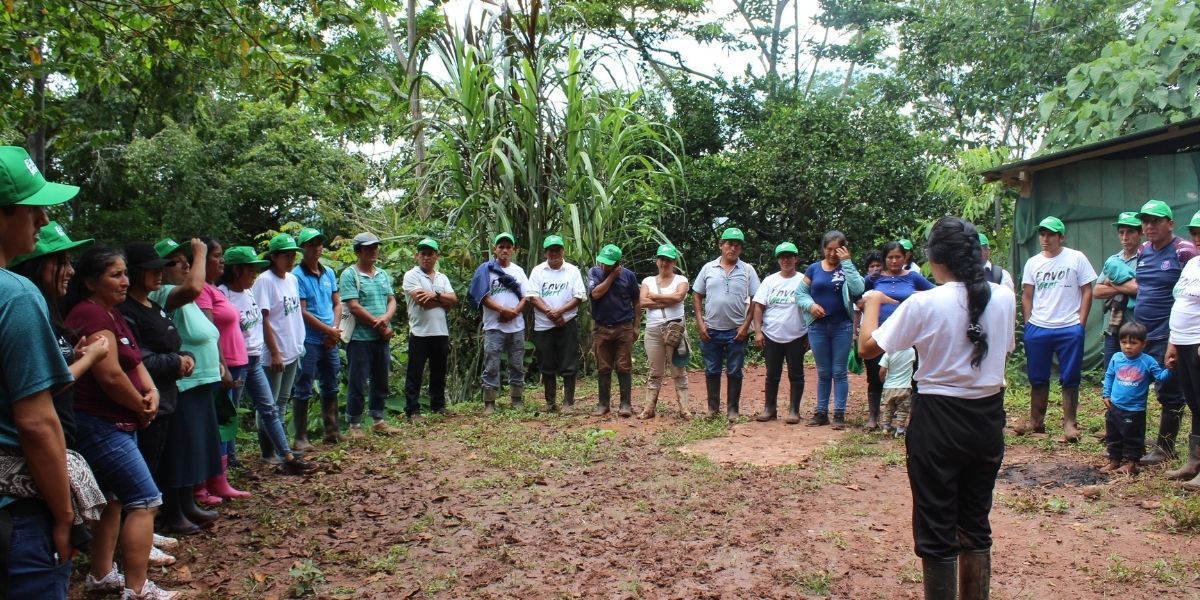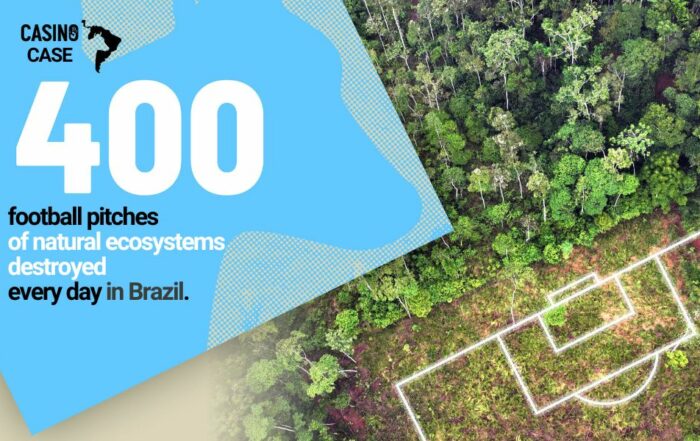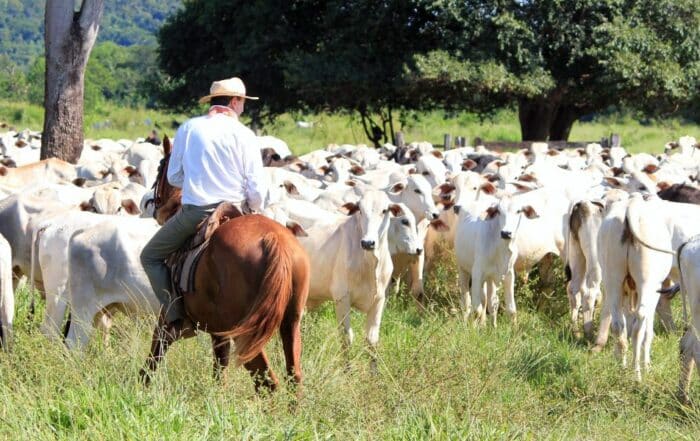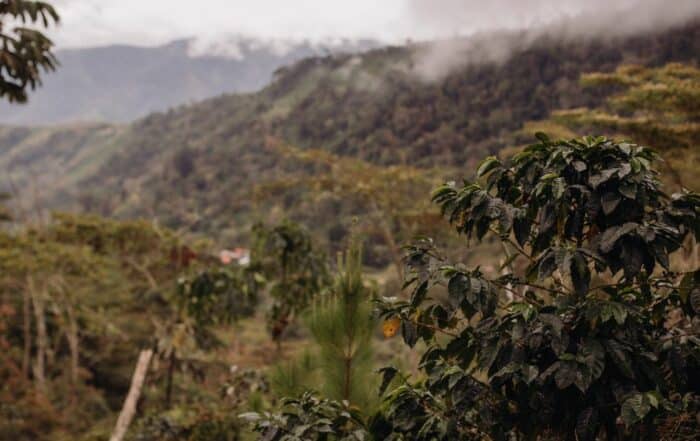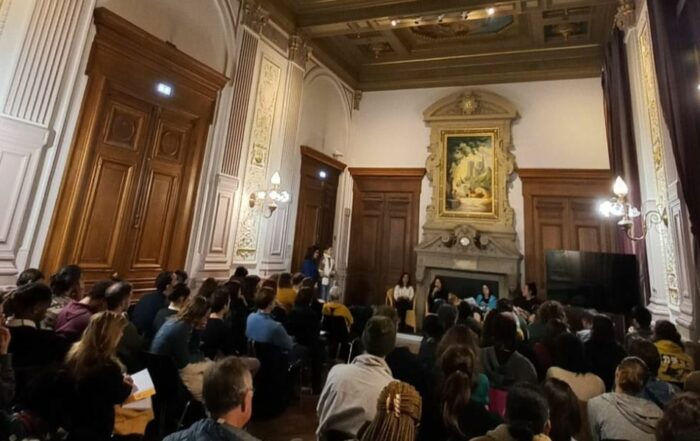In 2021, the Envol Vert teams organized 6 days of practice exchange in Pichanaki. These days consisted of visiting the plots of local producers who were participants or former participants of the project. In total this year, 213 participating farmers were able to benefit from these days.
These visits have several objectives. It is an opportunity for the participants to review and put into practice some of their learnings directly in the field. Those visits of agroforestry systems allow them to project their work to a few years from now, to visit other nurseries or wooded areas, discovering new local species. These outings also allow the farmers hosting groups of visitors to share their knowledge and working methods. This empowers the producers, develops their leadership and enhances their work.
The social dynamics are also very important. Farmers get together, can exchange, share stories, learn from each other. They feel part of the same project and this motivates them to continue their work of reforestation and conservation of the forest.
This year for the first time, 4 days of exchange were organized as a team with Victor Macetas Lazo from Buena Vista. Victor is a former participant of the project. He planted his first trees of five different native species within his coffee trees in 2012 (in total almost 800 trees). Today, the almost 10-year-old trees form a real agroforestry system with the coffee plants but also with many fruit trees. The 5 hectares of the Macetas family demonstrate all the benefits of trees in the agricultural plots: a fertile and living soil with a constant soil cover, healthy coffee trees without the use of chemicals, pleasant working conditions thanks to the shade provided by the trees and food security for his family thanks to the diversity of fruits, vegetables and other plants produced.
![[AGROFOCAFE]Victor Macetas Lazo_JAN2022_M.CORREIAANTUNES[web]](https://da1323dc.delivery.rocketcdn.me/wp-content/uploads/2022/01/AGROFOCAFEVictor-Macetas-Lazo_JAN2022_M.CORREIAANTUNESweb.jpg)
Victor was paid for his work in organizing these visits and as a guide. A great prospect for an economic activity complementary to his agricultural activities. He shares his experience:
“A diversified farm gives you a better quality of life and a healthier production. This is possible thanks to reforestation and agroforestry systems.”
It is important for the participants to hear these words from another farmer who has followed the same path as them and who today is able to show them that sustainable agriculture in alliance with forest and soil conservation is possible.
![[AGROFOCAFE]Fotogrupalpasantia_DIC2021_M.FRANCOIS.JPGWEB](https://da1323dc.delivery.rocketcdn.me/wp-content/uploads/2022/01/AGROFOCAFEFotogrupalpasantia_DIC2021_M.FRANCOIS.JPGWEB.jpg)
In 2021, the Envol Vert teams organized 6 days of practice exchange in Pichanaki. These days consisted of visiting the plots of local producers who were participants or former participants of the project. In total this year, 213 participating farmers were able to benefit from these days.
These visits have several objectives. It is an opportunity for the participants to review and put into practice some of their learnings directly in the field. Those visits of agroforestry systems allow them to project their work to a few years from now, to visit other nurseries or wooded areas, discovering new local species. These outings also allow the farmers hosting groups of visitors to share their knowledge and working methods. This empowers the producers, develops their leadership and enhances their work.
The social dynamics are also very important. Farmers get together, can exchange, share stories, learn from each other. They feel part of the same project and this motivates them to continue their work of reforestation and conservation of the forest.
This year for the first time, 4 days of exchange were organized as a team with Victor Macetas Lazo from Buena Vista. Victor is a former participant of the project. He planted his first trees of five different native species within his coffee trees in 2012 (in total almost 800 trees). Today, the almost 10-year-old trees form a real agroforestry system with the coffee plants but also with many fruit trees. The 5 hectares of the Macetas family demonstrate all the benefits of trees in the agricultural plots: a fertile and living soil with a constant soil cover, healthy coffee trees without the use of chemicals, pleasant working conditions thanks to the shade provided by the trees and food security for his family thanks to the diversity of fruits, vegetables and other plants produced.
![[AGROFOCAFE]Victor Macetas Lazo_JAN2022_M.CORREIAANTUNES[web]](https://da1323dc.delivery.rocketcdn.me/wp-content/uploads/2022/01/AGROFOCAFEVictor-Macetas-Lazo_JAN2022_M.CORREIAANTUNESweb.jpg)
Victor was paid for his work in organizing these visits and as a guide. A great prospect for an economic activity complementary to his agricultural activities. He shares his experience:
“A diversified farm gives you a better quality of life and a healthier production. This is possible thanks to reforestation and agroforestry systems.”
It is important for the participants to hear these words from another farmer who has followed the same path as them and who today is able to show them that sustainable agriculture in alliance with forest and soil conservation is possible.
![[AGROFOCAFE]Fotogrupalpasantia_DIC2021_M.FRANCOIS.JPGWEB](https://da1323dc.delivery.rocketcdn.me/wp-content/uploads/2022/01/AGROFOCAFEFotogrupalpasantia_DIC2021_M.FRANCOIS.JPGWEB.jpg)

